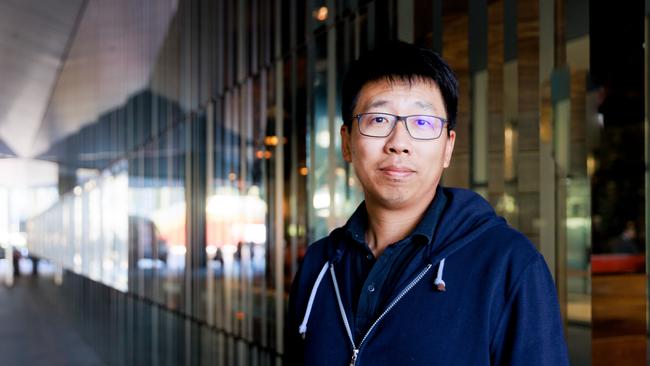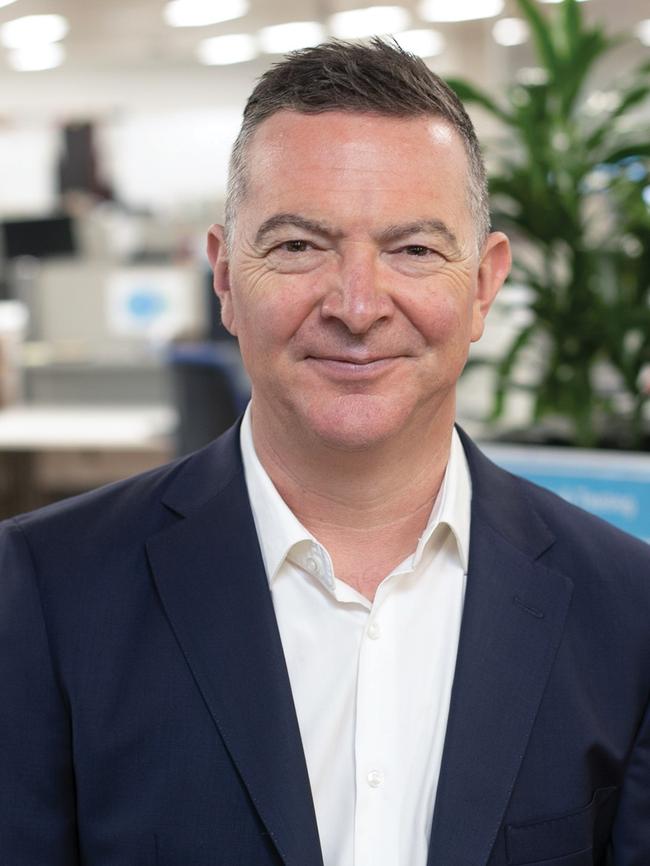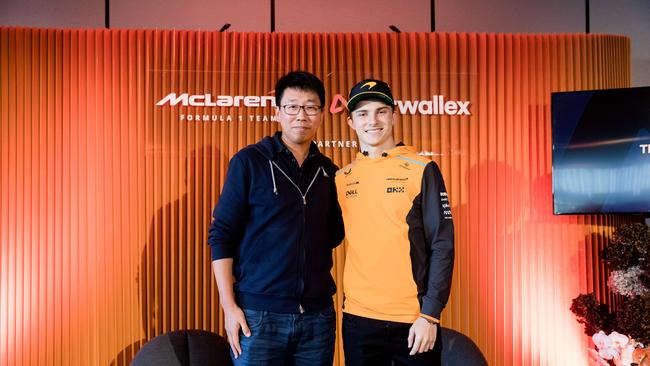Airwallex CEO dismisses blockchain as ASIC launches crackdown
ASIC’s new commissioner Alan Kirkland says blockchain players will need to lift their game but Airwallex’s founder says it’s done fine without it as it prepares to launch in Japan.

The financial regulator is plotting a crackdown on blockchain players, saying they need to operate “honestly and fairly”, as Airwallex founder and chief executive Jack Zhang dismisses the technology’s hype.
Australian Securities and Investments Commissioner Alan Kirkland - who began his five-year term last November - has elevated blockchain to among his top priorities.
It comes as the Albanese government released a consultation paper on regulating payment service providers late last year, but Mr Kirkland said ASIC has already been planning a crackdown, while making a broadside at several players, warning they need to step up their game.
“We have already begun thinking about implementation – such as our processes and guidance,” Mr Kirkland said.

“It is likely going to mean significant uplift in the operations of a number of industry participants. The proposal is that platform providers will need to comply with the general obligations for licensees – including operating efficiently, honestly and fairly – alongside other obligations within the Corporations Act.”
Blockchain is essentially a digital and decentralised ledger that can be used to link financial transactions and underpins many cryptocurrencies, like bitcoin. Mr Kirkland is ramping up scrutiny on what is known as tokenisation - a term whereby ownership of a digital assets is represented as a digital token and stored on a blockchain.
But Mr Zhang - who founded Airwallex in a Melbourne cafe eight years ago - said international payments could be streamlined without using blockchain and cryptocurrency.
He said Airwallex’s platform has been successfully disrupting the big banks globally and was planning on entering the highly-regulated Japanese market, focussing on online payments, in the second half of this year.
Half of the payments made on Airwallex’s network are now instant, while 85 per cent are completed on the same day. This compares with transactions with the big banks taking days.
Airwallex has been taking on the big banks by bypassing the SWIFT payments network to speed up international transfers and avoid the hefty fees from the multi-billion intermediary banking industry, which are dominated by the likes of Citi and Bank of America.
“The banks use a system called SWIFT, also called correspondent banking. In nature, it’s a bilateral relationship. So say NAB, as the original Aussie bank, doesn’t have the network to have a relationship with every bank in the world. So what it does is it connects with the smaller banks via an intermediary bank,” Mr Zhang said.
“There’s like up to five guys in the middle. Each of the people will charge you, you know, $5 to $10 - that kind of adds up and then more importantly is it also slows everything down. And who knows how many are in the middle right? I just don’t know.
“With Airwallex, it’s free. I’m not charging a single dollar, and it’s in real time. It’s fast. It’s efficient. People ask me ‘what about crypto, what about blockchain?’. Well you can’t be faster than real time and you can’t be cheaper than free, so what problem are you solving?
Airwallex has been on an acquisition spree. It bought Mexican payments company MexPago last October to expand its presence in Latin America, and has a mass recruitment drive - including making a raft of executive appointments in its San Francisco office to bolster its US operations.

It has been intensifying its marketing, including striking a deal with McLaren to support the British Formula 1 team’s financial operations, including multi-currency transactions and its merchandise platform.
It is a partnership that has attracted further attention after drivers Lando Norris and Oscar Piastri finished third and fourth respectively at the Australian Grand Prix on Sunday, and serves as w ay to gain a foothold in motorsports loving Japan.
But Mr Zhang says Australia remains an important market where it white labels its products to big companies, including Qantas.
“They built Qantas Money for businesses leveraging our infrastructure. We are not only able to innovate for a merchant directly, with our customer, we are also able to distribute our product … with a great brand like Qantas to help their customers to enjoy the benefit of our infrastructure.”
Airwallex is currently in the process of hiring 500 staff, as reported previously by the Australian. Mr Zhang said the company was prioritising competency over qualifications.
“I think we made some early mistakes on hiring to be honest,” Zhang said.
This has led to Airwallex snapping up talent from “other big businesses”, with 40 per cent of its new hirings last year coming from outside the tech industry.






To join the conversation, please log in. Don't have an account? Register
Join the conversation, you are commenting as Logout